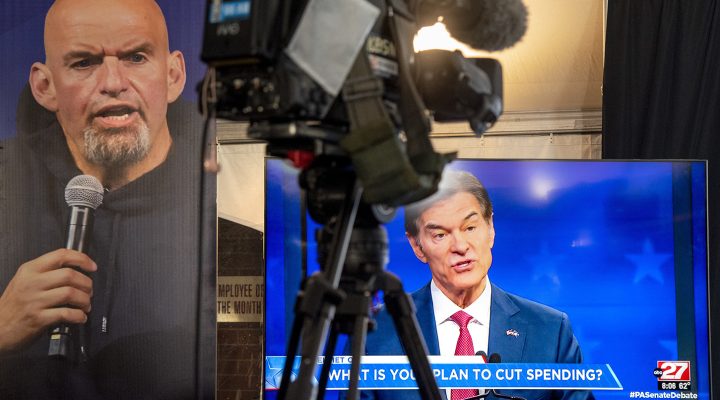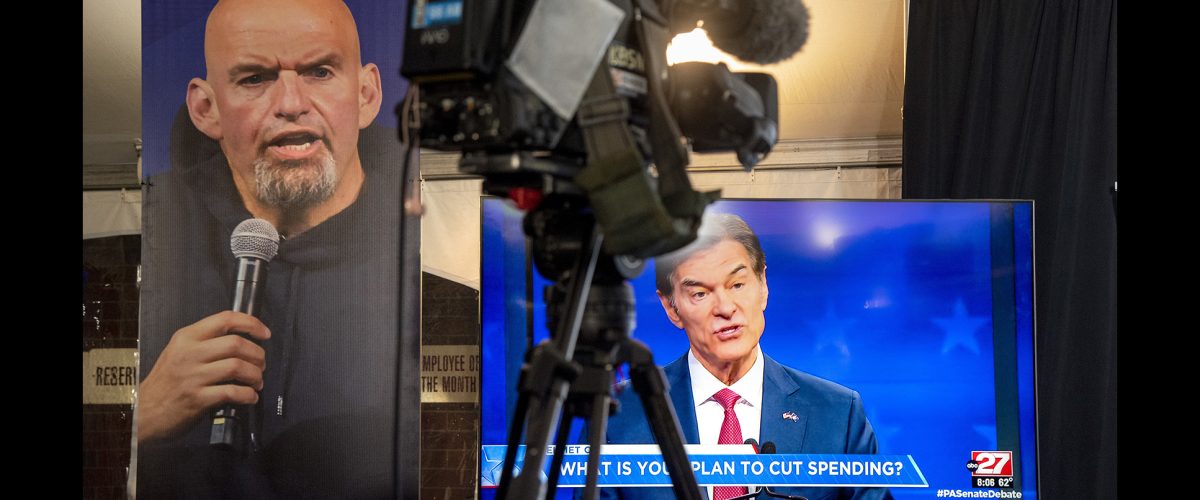Prior to the 2022 Pennsylvania Senate debate between John Fetterman and Mehmet Oz, many Americans never had heard of auditory processing disorder, known as APD for short. Now the disability is front and center in a race that may determine control of the U.S. Senate because Fetterman has been diagnosed with APD.
People with APD are grateful for the attention the campaign has brought to their struggle. “My husband and I were just saying that the debate brought some awareness to APD,” said one woman on a Facebook support group for auditory processing disorder. “APD isn’t visible and therefore it’s easy for people to forget about it or to dismiss the person with it because you can’t see the disability.”
This particular Facebook group has more than 20,000 members and is only one of several on the social media platform where folks gather for encouragement and information about this little-known disability.
The basics
So what is APD?
“The best analogy I’ve ever heard about APD is that it’s like dyslexia for your ears,” said Meg Schanes, a college student who vlogs about her disability. “My eyes can see just fine with contacts in. The same way my ears can hear just fine. My brain just can’t take in the information and put it out as something that makes sense. I have to do the work for it. We with APD have to work twice as hard to get through the day.”
One percent of Americans have been diagnosed with APD. The actual number of those who have APD is thought to be higher because the disorder is routinely underdiagnosed and misdiagnosed by physicians and audiologists who have not been specially trained to detect it. That’s because auditory processing disorder is not about one’s ability to hear.
“It’s an information-processing-once-it’s-been-heard problem.”
People with APD often have hearing well within the normal range when given a pure tone audiometry test. “It’s an information-processing-once-it’s-been-heard problem,” explained educational psychology professor Alan Edmunds of the University of Western Ontario. The difficulty comes when sound reaches the brain and must be decoded, interpreted and remembered by the listener.
APD is a weakness in the connections that occur between the various processing stations in the brain. Some of these stations are for auditory and language systems, but others might be systems that direct executive functioning and sensory processing. A 9-year-old with APD explained it to his mother this way, “I can hear your words, but when the words travel from the nerves in my ear to my brain, the nerves play the game ‘Telephone.’ So, by the time your words get to my brain, they get messed up and I think you said something different.”
Symptoms in children
Children and adults with APD are often concentrating so intensely on understanding what’s being said they sometimes forget parts of what they hear and have difficulty remembering multistep directions.
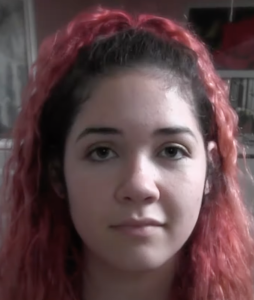
Meg Schanes
Monica Chiaropi divides a task into simple steps for her kindergartener Savannah. “I would say, ‘Can you get your cup?’ and wait for Savannah to do that first. Then I’d praise her for understanding and follow up with, ‘Can you bring it to the kitchen?’ and point to the kitchen.”
For some children like Savannah, the inability to process the subtle differences between sounds affects their speaking ability as well. “Savannah wasn’t talking like other toddlers, even simple words like ‘mama’ and ‘dada.’ Her hearing was fine, she just couldn’t speak.”
5% of school-age children have some form of APD.
In the U.S., 5% of school-age children have some form of APD.
“People think auditory processing disorders are rare, but they’re actually pretty frequent in the population where there’s been a neurologic condition. When you’re affecting the brain, you’re affecting lots of parts of the brain” Murry said. Children with autism are likely to have Auditory Processing Disorder. APD also co-occurs with ADHD, dyslexia and other learning disabilities but often falls through the cracks when doctors and psychologists make their diagnoses.
Left untreated, children end up melting down or shutting down. “The kids struggling with this are not bad, inattentive or intentionally disruptive kids,” posted another mother of a child with APD on Facebook, “They are indeed struggling.”
Symptoms in adults
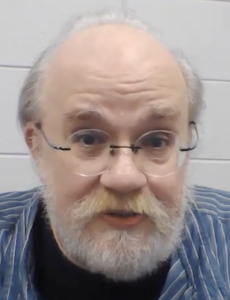
Christopher Hoover
While auditory processing disorder is primarily associated with children, it also can show up in adults. The primary difficulty for adults with APD is recognizing speech in the presence of background noise
“If there was any interfering noise like running water or other people speaking, I frequently couldn’t make out what was being said,” said Christopher Hoover about his APD. “For most of (my life) the only name I had for it was ‘my weird hearing thing.’ This is true for many adults who were not correctly diagnosed at a younger age or whose condition was not severe enough to merit attention until it worsened and began to interfere with work or relationships. For older men and post-menopausal women, auditory processing disorder is often part of the aging process.
Those in the military also are more prone to auditory processing disorders.
Those in the military also are more prone to auditory processing disorders. Researchers examining the medical records of 35,000 veterans found that 2,000 of them had been officially diagnosed with APD; but they believe this number is low due to the lack of trained audiologists in clinics run by the Veterans’ Administration. The dangerous noise levels of engines, firearms and weapons systems, along with the ototoxic properties of jet fuel, put men and women who serve at greater risk for APD.
In another study, 15% of returning military personnel surveyed experienced auditory processing disorders as a result of repeated blast explosions. While the immediate concern in a blast event is hearing damage, the blast wave itself can cause damage to the connections in the central auditory system.
Stroke, epilepsy or a traumatic brain injury cause similar neurological problems leading to auditory processing disorder. When a stroke occurs in the left hemisphere of the brain, where the language systems are concentrated, as it did with John Fetterman, the stroke is more likely to impact that person’s speech and ability to process sound.
While epilepsy effects a different part of the brain, its impact on auditory processing is similar. “Often a word I want will evade me as I try to catch it like a cat swatting at a string just out of reach,” wrote Lisa Mangini, professor of English at Penn State who has epilepsy. “Like Fetterman, I sometimes ‘mush two words together.’”
Writing out of personal experience
When it comes to a traumatic brain injury, the auditory effects can linger long after the physical ones. Several years after a sustaining a serious head injury in a car accident, Teri James Bellis, a professor at the University of South Dakota and a leading expert on APD, discovered her own auditory processing disorder.
“I noted that everyone was speaking to me in odd tones of voice. I also thought people were being sarcastic, or perhaps abrupt with me. I thought everyone had a mean tone of voice,” she said. She went on to write the book When the Brain Can’t Hear: Unraveling the Mystery of APD, to help doctors, teachers and parents better understand the varieties of APD.
“APDs look very different from person to person. If your child or spouse or if you have APD, we have some excellent therapies that work, as well as very good ways to help you learn to live and function in spite of the disorder,” she said.
Environmental changes help
While there is no cure for auditory processing disorder, modifications in a person’s environment and changes in the way information is delivered can make the condition easier to manage.
“If you have information you want us to know or remember, write it down or give us time to write it down.”
“Remove us from environmental distractions as much as possible when you try to speak to us about something important. Get to a quieter area of a room or go to another room to have a conversation,” suggested a member of the APD Facebook group. “If you have information you want us to know or remember, write it down or give us time to write it down.” Another advised: “Remember eye contact. Gain our attention so that we know it’s time to listen. Your expressions absolutely help as well.”
These modifications also are important for children with APD who require additional accommodations in the classroom. Speech therapy, occupational therapy and auditory therapy can make a big difference in the lives of children with APD.
The first National Youth Poet Laureate Amanda Gorman, who performed her poetry at President Biden’s inauguration, was diagnosed with APD in kindergarten. It impacted her ability to read and speak. “One of my delays was in speech and speech pronunciation,” she recalled. The letter “r” was particularly difficult for the Harvard graduate: “That was something that I would struggle with until probably 20 years of age.”
Hearing assistive technology such as low-gain hearing aids or a remote microphone system can amplify the primary speaker’s voice while reducing distracting background noise. Such technology also improves the ability of young children to hear and acquire language. Unfortunately, these devices, like testing for APD and auditory therapy, are not covered by insurance.
Financial barriers
Audiologist Lisa Seerup admits it’s difficult to get support for APD without access to money: “Hearing loss is a child poverty issue, but it’s treated like a rich person’s disease.”
When Donna Bausch began looking into hearing aids for her daughter, she was stunned. “Most people I talked to did not realize that access to hearing aids was so limited, even for children who might need that technology for learning,” she said.
Advocating for accommodation and providing hearing assistance in our places of worship are ways churches can support persons with APD.
Bausch testified before the Virginia General Assembly in support of a law that would require insurance companies to cover hearing aids for children. “I have never done anything like that before and the idea of that was so overwhelming, but I had to say yes,” she explained. “I am so glad I did.”
Lobbying for the inclusion of a hearing in noise screening tool in the standard pediatric audiologic test battery would go a long way toward early detection and treatment of APD, especially in underserved communities. Not only would this impact academic performance but treating APD also has been shown to help behavior and social interaction. A recent study of incarcerated youth revealed that 17% of them had an undiagnosed auditory processing disorder, more than three times the average for their age group.
“It’s an ‘invisible’ disability, all of which set roadblocks for our kids.”
“There’s such a lack of awareness, and it’s an ‘invisible’ disability, all of which set roadblocks for our kids. The effect it has on our kids is so detrimental to a kid who already has so many obstacles,” the mother of twin sons with APD shared on Facebook.
Ideas for churches
Churches can implement many of the same accommodations used in schools and in the workplace to make their environments more inclusive:
- For church meetings, have written agendas and allow members to record the discussion.
- If the meeting is taking place via Zoom, record the session with closed captioning.
- “Front loading” information for adult and youth Bible studies by providing a summary of what will be covered in the lesson is helpful for participants with APD.
- When watching a video in Bible study, pause the video before asking questions or giving directions.
- If playing a game in youth group or children’s church, write the steps on a white board where kids can see them.
- During VBS or other events where there will be lots of noise and activity, provide children with APD a quiet space to retreat and take a break from auditory stimuli.
While some church members with auditory processing disorder may need to distance themselves from the volume of the organ or worship band, others may struggle with the sermon. Such was the case at Boulevard Baptist Church in Anderson, S.C.
“We tried so many things to fix the experience inside the sanctuary,” said Bobby Rettew, chair of the church’s Communication Committee. A system from Listen Technology now enables them to stream the audio of their Sunday service over Wi-Fi in the sanctuary. Members who have downloaded an app are able to hear the service in real time through their own headphones or Bluetooth-enabled hearing aids. Technology like this also could be useful for church business meetings, conferences, youth gatherings and VBS.
In need of grace
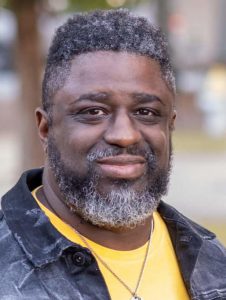
Lamar Hardwick
“We are called to be the people of grace, but I don’t think we practice that very well,” said Lamar Hardwick, a pastor with autism and processing disorders. “Cultivating understanding that people often have invisible disabilities can make a community more inclusive and gracious.”
That’s what those in the Facebook group for APD seek above all else, as evidenced by their comments:
- “I wish everyone could understand that there are people in this world that don’t function and process things the same way that they do,” said a mother whose daughter has APD and is struggling at work.
- “I wish we could get educators trained on this,” said another parent whose child is losing confidence at school.
- “I wish people knew it was an actual real thing,” said one member. “I’ve had people laugh it off while they say, ‘You just don’t listen.’”
- “I wish people would know that APD has nothing to do with intelligence. You can be brilliant and still have an Auditory Processing Disorder,” said an audiologist in the group. “I wish everyone knew about APD.”
Kristen Thomason is a freelance writer with a background in media studies and production. She has worked with national and international religious organizations and for public television. Currently based in Scotland, she has organized worship arts at churches in Metro D.C. and Toronto. In addition to writing for Baptist News Global, Kristen blogs on matters of faith and social justice at viaexmachina.com.
Related articles:
As Americans with Disabilities Act turns 30, barriers remain
Peter’s un-healing of Petronilla’s holy ‘palsy’ in the Coptic Act of Peter has a lesson for us today about disability | Opinion by Mallory Challis

